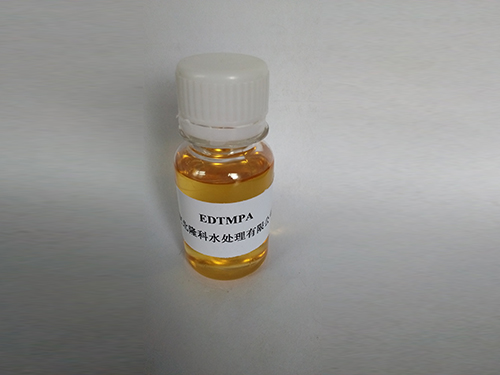scale and corrosion inhibitor
Understanding Scale and Corrosion Inhibitors Protecting Industrial Systems
In industrial operations, particularly in sectors such as manufacturing, power generation, and oil and gas, the integrity of equipment and infrastructure is paramount. Two of the most significant challenges that these industries face are scale formation and corrosion. Both issues can lead to severe operational inefficiencies, increased maintenance costs, and significant downtime. As a result, the use of scale and corrosion inhibitors has become essential in ensuring the longevity and reliability of industrial systems.
The Nature of Scale and Corrosion
Scale refers to the mineral deposits that accumulate on surfaces within various systems, particularly in heat exchangers, boilers, and cooling towers. This mineral buildup, often composed of calcium carbonate, silica, or other minerals, can significantly impede heat transfer efficiency, leading to increased energy consumption. As the scale thickens, it can cause overheating and even equipment failure.
Corrosion, on the other hand, is the gradual destruction of materials (usually metals) due to chemical reactions with environmental factors. This process is often accelerated in the presence of moisture, electrolytes, and certain pH levels. The consequences of corrosion can be devastating, leading to leaks, structural failures, and catastrophic incidents in severe cases. Preventing both scale and corrosion is crucial for maintaining operational efficiency and safety.
The Role of Inhibitors
Scale and corrosion inhibitors are chemical substances that are introduced into industrial processes to mitigate the adverse effects of these phenomena. They work through various mechanisms, depending on their chemical nature and the specific industrial application.
Types of Scale Inhibitors
Scale inhibitors typically function by interfering with the crystallization process of mineral compounds. Substances such as polyphosphates, phosphonates, and polymers are commonly used in water treatment. These inhibitors either change the morphology of the scale crystals, making them less likely to adhere to surfaces, or keep the minerals in suspension, preventing them from forming solid deposits. For instance, in boiler systems, the use of polyacrylic acid has been shown to be effective in reducing calcium carbonate scaling.
scale and corrosion inhibitor

Types of Corrosion Inhibitors
Corrosion inhibitors can be broadly categorized into anodic, cathodic, and anodic-cathodic inhibitors. Anodic inhibitors, such as chromates and nitrates, tend to form a protective film on the metal surface that hinders oxidation. Cathodic inhibitors, such as zinc salts and phosphonates, work by altering the electrochemical reactions at the cathode, effectively slowing down the corrosion process. Anodic-cathodic inhibitors, which combine both functions, are particularly effective in various environments.
Application in Industry
The application of these inhibitors varies across different industrial settings. In the oil and gas industry, for example, both scale and corrosion inhibitors are critical due to the aggressive nature of downhole conditions. Here, inhibitors are injected into pipelines to prevent scale buildup and material degradation, ensuring uninterrupted fluid flow and protecting against costly repairs.
In cooling water systems, where both scale and corrosion can present significant challenges, a combination of the two types of inhibitors is often employed. The effective management of these substances leads to improved efficiency, prolonged equipment life, and reduced operational costs.
Challenges in Inhibitor Usage
Despite their effectiveness, the implementation of scale and corrosion inhibitors is not without challenges. The selection of appropriate inhibitors must consider factors such as the specific type of water chemistry, pH levels, temperature, and other variables. Additionally, environmental regulations regarding the use of certain chemicals must be adhered to, pushing industries to seek more sustainable and eco-friendly alternatives.
Conclusion
In summary, scale and corrosion inhibitors play a vital role in protecting industrial systems from the detrimental effects of mineral deposits and material degradation. By understanding the mechanisms of these inhibitors and their appropriate application, industries can enhance efficiency, minimize downtime, and achieve significant cost savings. As technology advances, the development of innovative inhibitors that are both effective and environmentally friendly will be key to tackling the ongoing challenges posed by scale and corrosion in industrial settings.
-
Dodecyldimethylbenzylammonium Chloride: High-Purity DisinfectantNewsAug.30,2025
-
2-Phosphonobutane-1,2,4-Tricarboxylic Acid: Scale & CorrosionNewsAug.29,2025
-
Premium Isothiazolinones | Broad-Spectrum Biocidal SolutionsNewsAug.28,2025
-
LK-319 Special Scale And Corrosion Inhibitor For Steel Plants: Advanced Solutions for Industrial Water SystemsNewsAug.22,2025
-
Flocculant Water Treatment: Essential Chemical Solutions for Purification ProcessesNewsAug.22,2025
-
Isothiazolinones: Versatile Microbial Control Agents for Industrial and Consumer ApplicationsNewsAug.22,2025





